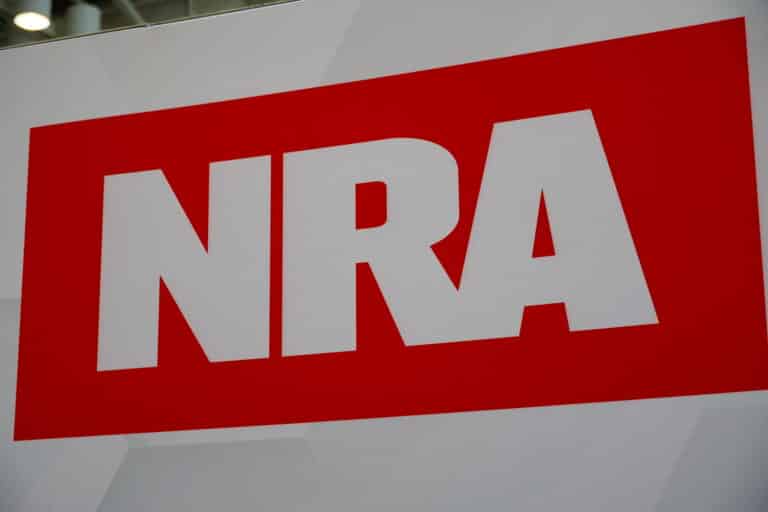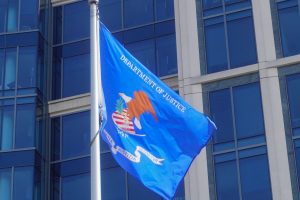A New York official’s attempts to push financial institutions to drop their relationships with the National Rifle Association over the group’s pro-gun views ran afoul of the Constitution.
That was the unanimous ruling handed down by the Supreme Court of the United States (SCOTUS) on Thursday. The High Court overturned a lower court ruling in favor of former New York Department of Financial Services (DFS) superintendent Maria Vullo and sided with the NRA.
“[T]he Court holds that the NRA plausibly alleged that Vullo violated the First Amendment by coercing DFS-regulated entities to terminate their business relationships with the NRA in order to punish or suppress the NRA’s advocacy,” Justice Sonia Sotomayor, a Barack Obama appointee, wrote for the Court in NRA v. Vullo.
The ruling is a significant symbolic win for the beleaguered gun-rights group. While the decision doesn’t represent a final ruling in the case, it does establish what the NRA alleges Vullo did would constitute a Constitutional violation. That finding provides the group with ammunition in court as the case moves forward and in the public arena, where it has long asserted New York officials have attacked it on multiple fronts because of its political views.
Still, the case has no direct impact on the NRA’s civil corruption trial, where a New York jury found the group’s previous leadership liable for diverting millions in charitable assets toward personal expenses.
NRA v. Vullo stems from a series of 2018 letters and meetings between Vullo and insurers who backed NRA products in the state, including a concealed carry “insurance” program. She warned the companies, which she had regulatory power over, about the “reputational risk” of continuing to do business with the NRA or any other pro-gun group.
“Subject to compliance with applicable laws, the Department encourages its chartered and licensed financial institutions to continue evaluating and managing their risks, including reputational risks, that may arise from their dealings with the NRA or similar gun promotion organizations, if any, as well as continued assessment of compliance with their own codes of social responsibility,” Vullo wrote in the letter. “The Department encourages regulated institutions to review any relationships they have with the NRA or similar gun promotion organizations, and to take prompt actions to managing these risks and promote public health and safety.”
Vullo told the insurers that other companies dropping the gun-rights group was an example of “good governance.”
“There is a fair amount of precedent in the business world where firms have implemented measures in areas such as the environment, healthcare, and civil rights in fulfilling their corporate social responsibility,” she said. “The recent actions of a number of financial institutions that severed their ties with the NRA and have taken other actions after the AR-15 style rifle killed 17 people in the school in Parkland, Florida, is an example of such a precedent.”
The NRA said her actions went beyond the public letters. It alleged she also had conversations with the NRA’s insurers, Lloyds of London and Lockton, in which she threatened their businesses if they didn’t cut ties with the gun-rights group. The groups did just that shortly after the alleged meetings.
In September 2022, a three-judge panel at the Second Circuit Court of Appeals reversed a lower court’s ruling in favor of the NRA. It ruled Vullo “acted reasonably and in good faith.”
“[W]e conclude that the NRA has failed to plausibly allege that Vullo ‘crossed the line ‘between attempts to convince and attempts to coerce,'” the panel wrote. “Moreover, even assuming that Vullo’s actions and statements were somehow coercive, we conclude further that her conduct here–taking actions and making statements in her various capacities as regulator, enforcement official, policymaker, and representative of New York State–did not violate clearly established law.”
The Supreme Court slammed that decision in its ruling.
“The Second Circuit could only reach this conclusion by taking the allegations in isolation and failing to draw reasonable inferences in the NRA’s favor in violation of this Court’s precedents,” Sotomayor wrote.
Instead, SCOTUS said Vullo’s alleged actions constituted a coercive threat or inducement directed at the insurers with the goal of harming the NRA’s ability to spread its political message.
“One can reasonably infer from the complaint that Vullo coerced DFS-regulated entities to cut their ties with the NRA in order to stifle the NRA’s gun-promotion advocacy and advance her views on gun control,” Sotomayor wrote. “Vullo knew, after all, that the NRA relied on insurance and financing ‘to disseminate its message.'”
The Court said the allegation that Vullo offered the insurers a behind-closed-doors deal to ignore similar violations by other non-gun groups if they broke ties with the NRA and other pro-gun groups made her intentions clear.
“Vullo therefore wanted Lloyd’s to disassociate from all gun groups, although there was no indication that such groups had unlawful insurance policies similar to the NRA’s,” Sotomayor wrote. “Vullo also told the Lloyd’s executives she would ‘focus’ her enforcement actions ‘solely’ on the syndicates with ties to the NRA, ‘and ignore other syndicates writing similar policies.’ The message was therefore loud and clear: Lloyd’s ‘could avoid liability for [unrelated] infractions’ if it ‘aided DFS’s campaign against gun groups’ by terminating its business relationships with them.”
SCOTUS said Vullo’s alleged actions constituted a use of government force to curtail the free speech rights of her political opponents.
“At the heart of the First Amendment’s Free Speech Clause is the recognition that viewpoint discrimination is uniquely harmful to a free and democratic society,” Sotomayor wrote.
Justice Neil Gorsuch, a Donald Trump appointee, wrote a concurrence agreeing with the Court’s holding but adding his opinion the four-pronged test used to determine First Amendment violations in cases like NRA v. Vullo should be used more as a guideline rather than a rigid dogma. Justice Ketanji Brown Jackson, a Joe Biden appointee, offered up her own concurrence that argued the case may have worked better as a retaliation claim than a government coercion one–something she encouraged the lower court to litigate on remand.
The Court sent NRA v. Vullo back down to the Second Circuit Court of Appeals to decide on the validity of the NRA’s factual claims and Vullo’s argument that she is protected by qualified immunity because her actions weren’t well established as unconstitutional beforehand. In a footnote, the Court emphasized it was required to consider the allegations in the NRA’s brief as accurate during this phase of the case and other facts could come to light that might change those facts as the proceedings move forward.
“Of course, discovery in this case might show that the allegations of coercion are false, or that certain actions should be understood differently in light of newly disclosed evidence,” the Court wrote. “At this stage, though, the Court must assume the well-pleaded factual allegations in the complaint are true.”
Ultimately, the unanimous Court concluded that Vullo’s alleged behavior crossed from acceptable advocacy into unconstitutional coercion.
“Vullo was free to criticize the NRA and pursue the conceded violations of New York insurance law,” Sotomayor wrote. “She could not wield her power, however, to threaten enforcement actions against DFS-regulated entities in order to punish or suppress the NRA’s gun-promotion advocacy. Because the complaint plausibly alleges that Vullo did just that, the Court holds that the NRA stated a First Amendment violation.”
UPDATE 5-30-2024 12:17 PM Eastern: This piece has been updated with additional background and quotes from the Supreme Court’s ruling.






